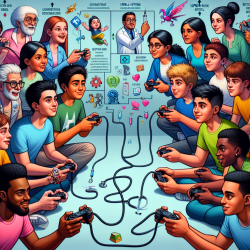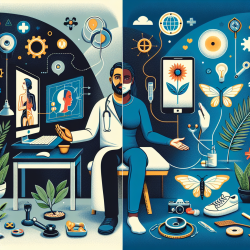Introduction
In the quest to improve vaccination rates among youth, innovative strategies are crucial. A recent systematic review, "Using Gaming to Promote Vaccination Among Youth," sheds light on how serious games can enhance vaccine-related knowledge and potentially influence behaviors. This blog explores the findings and implications of this research, offering insights for practitioners seeking to leverage gaming in health education.
The Power of Serious Games
Serious games are designed not just for entertainment but for educational purposes. The review analyzed 11 studies from 2013 to 2023, focusing on game-based interventions aimed at improving youth vaccination rates. The findings revealed that while serious games significantly boosted vaccine-related knowledge, their impact on actual vaccine uptake was limited. However, elements like in-game avatar customization and collaborative gameplay were effective in engaging players.
Key Findings
- Knowledge Enhancement: Most studies showed a significant increase in vaccine-related knowledge among participants, highlighting the potential of serious games as educational tools.
- Engagement and Motivation: Customizable avatars and narrative-driven contexts enhanced player engagement, suggesting that personalization can improve learning outcomes.
- Behavioral Intentions: While some studies reported increased vaccination intentions, this did not consistently translate into higher vaccine uptake.
Implications for Practitioners
For practitioners in the field of health education, these findings underscore the potential of integrating serious games into educational campaigns. By collaborating with game developers, healthcare providers can create engaging content that not only informs but also motivates youth to consider vaccination. However, the gap between intention and action remains a challenge, emphasizing the need for further research and tailored game designs that address the diverse needs of youth.
Conclusion
Serious games hold promise as tools for improving vaccine knowledge among youth. While the evidence for influencing actual vaccination behavior is less robust, the engagement and educational benefits are clear. Practitioners are encouraged to explore this innovative approach and contribute to research that bridges the gap between knowledge and action in health behaviors.
To read the original research paper, please follow this link: Using Gaming to Promote Vaccination Among Youth: A Systematic Review.










